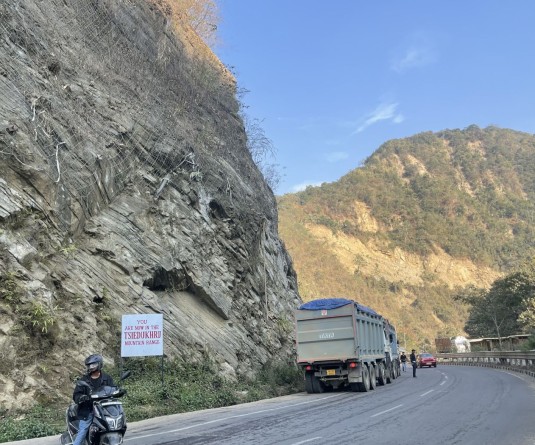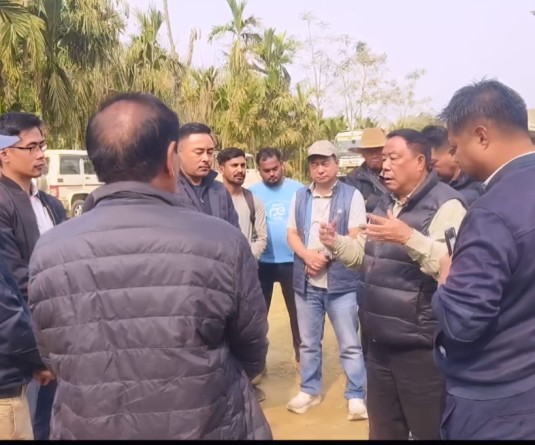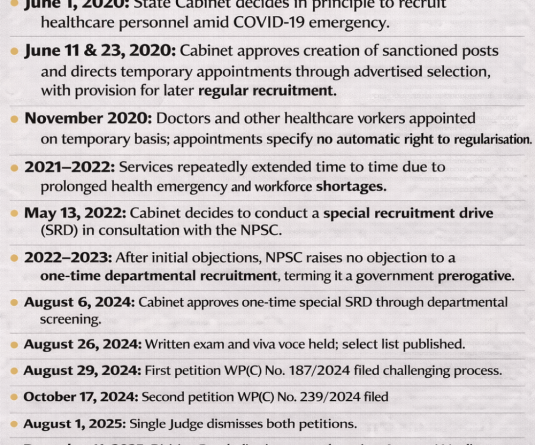
Assam Cooperative Societies Rules, 1953 still operative in Nagaland
Our Correspondent
Kohima | May 1
The Assam Cooperative Societies Act,1949 still remains in force in Nagaland, even as changing economic and contextual situations resulted in the passing of the Nagaland Cooperative Society Act, 2017 by the 15th session of the 12th Nagaland Assembly in 2017.
The Act is meant to repeal the Assam Co-Operative Act, 1949, which has been operative in the state from its inception till date. However, the drafting of the Nagaland Cooperative Societies Rules is still under process.
This was stated in the Annual Administrative Report 2022-23 of the Cooperation Department, Government of Nagaland which was tabled in the recently concluded 1st session of the 14th Nagaland Legislative Assembly.
The report stated that the cooperative movement in Nagaland initially started with the establishment of two cooperatives—Kohima Pioneers MPCS Ltd at Kohima and Ao Trading Cooperative Society Ltd at Mokokchung in 1946.
They were registered under the Government of Assam and local Cooperative Officers were also posted by the Assam Government. The real effort for organizing the cooperative movement in the State though started only after Nagaland attained statehood in 1963 and thereafter, the Office of the Registrar of Cooperative Societies, Nagaland was established in 1966 by bifurcating it from the Agriculture Department.
Indian cooperative laws and cooperative policy have influenced the direction and development of cooperatives in Nagaland. On recommendation of the All India Rural Credit Survey Committee 1951, an integrated system of rural credit was introduced. This policy led to State partnership in the share capital investment of cooperatives and in their management.
The State Government acknowledged the role of cooperative forms of organization which could play a vital role in establishment and promotion of economic and social democracy and in the implementation of democratic planning with the ideal of a welfare state.
The report stated that much importance is given in emphasizing the cooperative movement in the state as a mass movement for socio-economic upliftment of the rural people, enabling them to have a feeling of self-reliance which is of basic importance in a democratic way of life.
‘Strengthening economic self-reliance’
The mission of the department is towards ‘Strengthening the People for Economic Self-Reliance.’
The State Government through the Cooperative Department continues to play a pivotal role in the promotion of the cooperative sector through genuine cooperative entrepreneurship evolving into a mechanism of resource mobilization, regular income generation, gainful employment and wealth creation, the report stated.
To operate cooperatives in the true spirit, various strategies have been analysed. They include the role of government in ensuring that benefits of liberalization and globalization in the emerging economic environment are percolated to the cooperatives through suitable fiscal policies to provide support and protection to the Cooperatives Movements through suitably designed investment programmes.
It also involves efforts to initiate structural reforms in order to improve functioning of cooperatives at various levels and to ensure greater efficiency and viability. These may include steps to devise suitable mechanism for revitalization of sick cooperatives (particularly the Apex level), expedite and winding up defunct societies, loan recovery etc.
Another strategy is to support the cooperative movements to develop human resources, cooperative education and training, appropriate technologies and infrastructural facilities so as to promote professional management in cooperatives down to the primary level for their greater functional and operational efficiency.
Objectives of the department
The objective of the department is to make its movements as an instrument of democratic planning, combining initiative, mutual benefit and social purpose, ensuring that cooperatives be an essential feature of the programme for implementation of economic planning.
Cooperative agencies in the village are also planned to have the closest possible relationship with the Cooperative Society and cleave together with the Village Development Board (VDB).
With this object, an attempt has been made to have in each village a Cooperative Society Ltd, which is a recommended policy of the State Governments so as to cater to the multiple needs of its people (Member of Cooperative Society).
It also aims to revive and re-vitalize the cooperative credit sector by way of re-structuring in line with the policies adopted by the Government of Nagaland from time to time, with an aim to facilitate agricultural credit as well as micro-financial help to the rural people.
Finally, it aims to promote and develop marketing network through Cooperatives in harnessing agricultural production.






